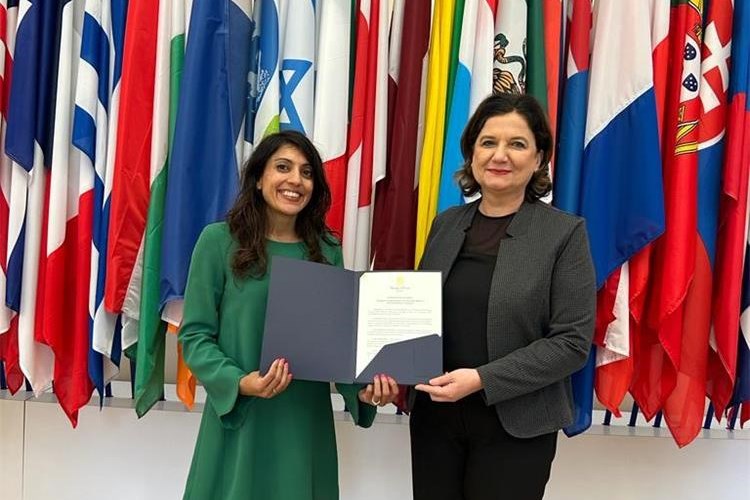- Published: 22.11.2023.
Croatia becomes 46th Party to OECD Anti-Bribery Convention
The Republic of Croatia became the 46th Party to the Convention on Combating Bribery of Foreign Public Officials in International Business Transactions (OECD Anti-Bribery Convention), demonstrating its commitment to international cooperation and the fight against corruption.
On Wednesday 22 March, Chargé d’Affaires a.i. of the Embassy of Croatia in France Senka Burić deposited Croatia’s instrument of accession to the OECD Anti-Bribery Convention at the OECD Headquarters in Paris. Under the terms of the Convention, the Convention will enter into force for Croatia on 21 January 2024, i.e. 60 days after the date of deposit of the instrument.By joining the OECD Working Party on Bribery in International Business Transactions on 30 October 2023, Croatia had undertaken to accede to the Convention as soon as possible.
“We very much welcome Croatia as the 46th Party to the OECD Anti-Bribery Convention. As the only international anti-corruption instrument focused on the supply side of bribery, the Convention is essential for promoting good governance, economic development, and a level-playing field in international business. In addition to demonstrating the country’s commitment to the fight against foreign bribery, Croatia’s accession to the Convention marks an important step on its path to OECD membership, aligning Croatia with OECD standards and best practices,” OECD Secretary-General Mathias Cormann said.
As a party to the Convention, the Republic of Croatia will undergo peer reviews to assess its implementation of the Convention and the effectiveness in practice of its anti-bribery legislation and institutions. The first phase of the assessment of the compatibility of legislation with the Convention is expected at its meeting in Paris on 5-8 December 2023.
The OECD Anti-Bribery Convention, which entered into force in 1999, establishes legally binding standards to criminalise bribery of foreign public officials in international business transactions. It also provides a host of related standards to support this commitment, on topics such as liability of legal persons, jurisdiction, sanctions, mutual legal assistance, and protecting investigations and prosecutions of foreign bribery from political or other forms of interference. Finally, by mandating peer-led country monitoring and follow-up, the Convention seeks to ensure that the fight against foreign bribery is effective.
Besides Croatia, the other Parties to the Convention are the 38 OECD member countries plus Argentina, Brazil, Bulgaria, Peru, Romania, the Russian Federation and South Africa.
